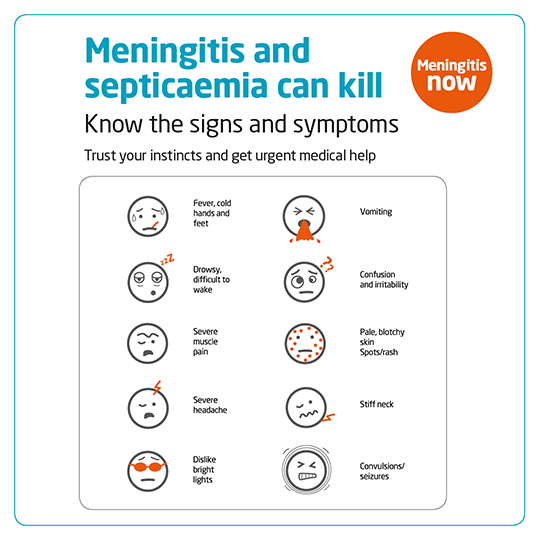A test has been developed that could help to diagnose bacterial infections, including meningitis in minutes.
If made available through the NHS, this test would significantly reduce the time taken to diagnose the disease and minimise the risk of misdiagnosis.

The new test, developed by a team at Imperial College London, is a major breakthrough in the rapid diagnosis of meningitis and sepsis in children. If made available through the NHS, it could allow treatment to begin much earlier, saving hundreds of lives and reducing the risk of life-changing after-effects.
The signs and symptoms of meningitis are notoriously difficult to diagnose, and can be dismissed as a cold or flu. Many young children presenting the early symptoms of the disease are initially sent home, before being rushed back to hospital a few hours later as their condition rapidly deteriorates.
Currently, doctors grow bacteria in a sample of blood, in a process which can take up to 48 hours.
Responding to the news, Liz Brown, CEO at Meningitis Now said: “A delay in life-saving treatment for bacterial meningitis can be a matter of life or death. We welcome this significant progress in the development of a rapid test for meningitis and sepsis.
“We would, however, continue to advise people to know the signs and symptoms of meningitis and to seek immediate medical attention if they have any concerns”.
Meningitis Now is the founder of the meningitis movement and the only charity dedicated to fighting meningitis in the UK
 The study led by Professor Michael Levin has shown that a bacterial infection can be distinguished from other causes of fever, such as a viral infection, using a pattern of genes that are switched on or off in response to an infection.
The study led by Professor Michael Levin has shown that a bacterial infection can be distinguished from other causes of fever, such as a viral infection, using a pattern of genes that are switched on or off in response to an infection.
A larger project will now begin to develop these findings into a pin-prick diagnostic test, which Professor Levin believes could be available through the NHS within five years.
For support and advice on meningitis call the Meningitis Now Helpline on 0808 80 10 388.
For more information or to donate visit the website at:
Meningitis and Septicaemia Facts
* Meningitis is usually caused by bacteria or viruses
* Meningitis is inflammation of the membranes that surround and protect the brain and spinal cord
* Septicaemia is blood poisoning
* Some bacteria that cause meningitis also cause septicaemia
* Meningitis and septicaemia often happen together – it is vital to know all the signs and symptoms
* The early signs and symptoms of meningitis and septicaemia can be similar to ‘flu and include fever, headache, nausea, vomiting and muscle pain.
* The more specific signs and symptoms include fever with cold hands and feet, drowsiness, confusion, pale blotchy skin, stiff neck, dislike of bright lights and a rash which doesn’t fade under pressure.
* In babies, symptoms can also include being floppy and unresponsive, dislike of being handled, rapid breathing, an unusual, moaning cry and a bulging fontanelle (soft spot on the top of the head).
* There are an estimated 3,200 cases of bacterial meningitis and septicaemia each year in the UK.
* Following bacterial meningitis or septicaemia, one in ten people will die and at least a third of survivors will be left with lifelong after-effects such as hearing loss, epilepsy, limb loss or learning difficulties
* Meningitis and septicaemia can affect anyone, of any age, at any time. However, babies and young children are most at risk, and young people between 15 – 24 years are also a higher risk group.
* In the past 20 years, effective vaccines have been developed to give protection against SOME types of meningitis. These are offered to all babies and young children as part of the UK childhood immunisation programme. BUT there are not vaccines to protect against ALL types.
* A vaccine to protect against meningococcal group B (Men B) disease, the most common cause of bacterial meningitis and septicaemia, was introduced into the UK childhood immunisation programme in September 2015.
* If you suspect someone may be ill with meningitis or septicaemia, trust your instincts and get immediate medical help.


























